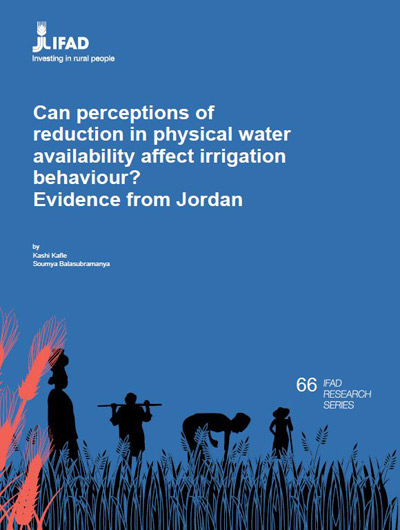Research Series Issue 66: Can perceptions of reduction in physical water availability affect irrigation behaviour? Evidence from Jordan
Research Series Issue 66: Can perceptions of reduction in physical water availability affect irrigation behaviour? Evidence from Jordan
Frequent droughts and rapidly depleting groundwater reserves have deepened the water scarcity crisis in Jordan. Even though most farms use ‘water-saving’ technologies, groundwater depletion continues at an alarming rate. We investigate how perceptions of physical water availability in the past are related to farmers’ current irrigation behaviour – frequency of irrigation and methods used in determining irrigation need.
Using primary data from a survey of 414 commercial farms in Mafraq and Azraq governorates, we find that respondents who perceived reduction in physical water availability and faced agricultural losses in the past irrigated more frequently and were more likely to use self-judgement in determining irrigation need. These relationships were more pronounced for smaller farms, farms with sandy soil, mono-cropping farms and farms where the owner was the manager.
These effects were lower for farms that preferred internet-based and in-person approaches for receiving irrigation advice. In addition, while the frequency of irrigation was higher among stone-fruit farms, the probability of using self-judgement in determining irrigation need was higher in olive farms and vegetable farms. We argue that farmers’ irrigation behaviour must be considered for groundwater management policy and planning in Jordan.

Authors
Kashi Kafle, Soumya Balasubramanya
Topics
Water
Countries
Citation
Kafle, K., Balasubramanya S., 2021. “Can perceptions of reduction in physical water availability affect irrigation behaviour? Evidence from Jordan’’ IFAD Research Series 66. Rome: IFAD